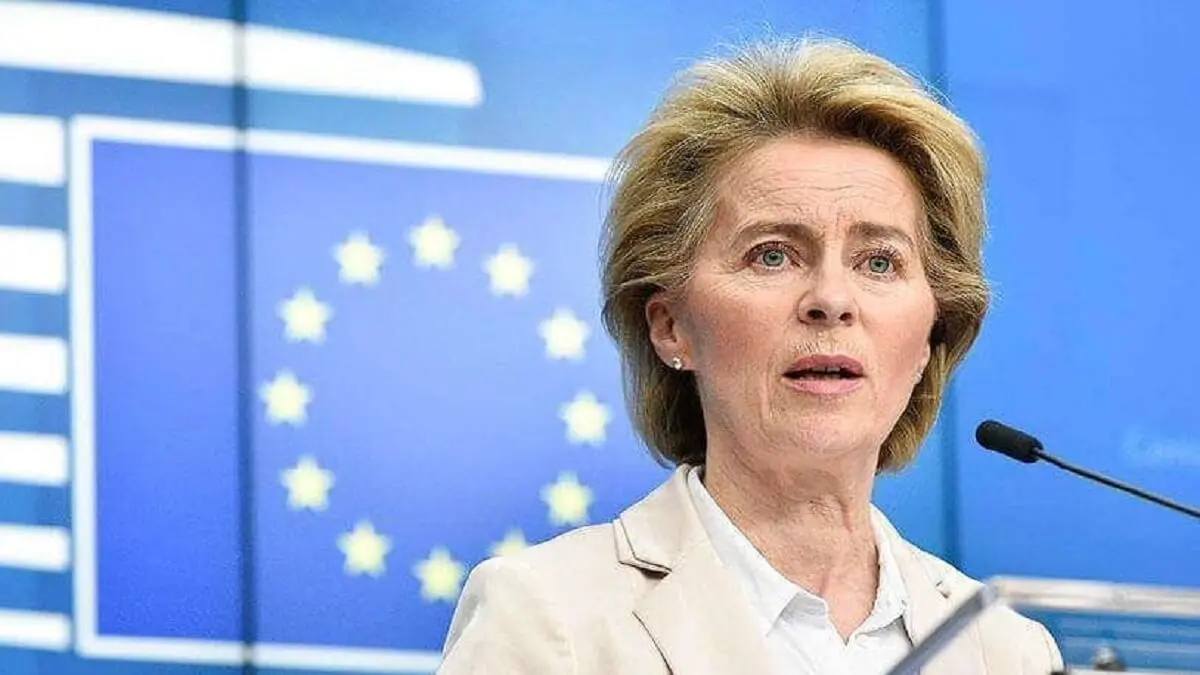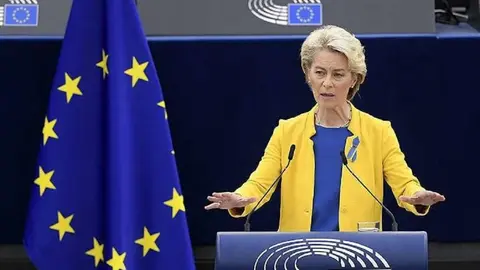Latin America epicentre of EU and Chinese interest

As a result of the pandemic and the disruptions derived from the health emergency, the world's geopolitics and geo-economy have been undergoing a series of alterations and rearrangements that have reconfigured a new puzzle. Latin America is not exempt from this dynamic, but has even repositioned itself in the interests of the great hegemonic powers.
Something is brewing within the region that is attracting attention to such an extent that in the week that Ursula von der Leyen, president of the European Commission (EC) toured Brazil, Argentina, Chile and Mexico, it was announced with great fanfare in Brasilia that trade with Russia will exceed 10 billion dollars in a couple of months and that its president, Luiz Inácio Lula da Silva, wants greater cooperation with the Kremlin.
Honduran President Xiomara Castro has travelled to Beijing to meet with her Chinese counterpart, Xi Jinping, after Castro decided to break off relations with Taiwan last March.
In this way, Castro made an unusual shift in her policy, taking a stance in favour of "one China", a change brought about by the imminent financial needs of the Tegucigalpa government. An economic suffocation that Jinping's government will capitalise on to its advantage.
As in the case of Cuba, also at the centre of controversy, after the New York Times revealed that China has plans to develop a spy centre on the island in exchange for investments and money injected from Beijing into the ailing Cuban economy.
And, as if that were not enough, Iran's President Ebrahim Raisi travelled to Venezuela and Nicaragua on an official state visit. With dictator Nicolás Maduro, they signed some twenty agreements, mainly focused on mining, petrochemicals and transport.
Raisi is seeking more trade alliances to obtain inputs and other products for which it is banned from accessing the world market due to US sanctions.
Latin America is once again in the ideological interest not only of China and Russia, but also of other autocracies; for the EU it is a clear threat to the democratic values it shares with the region.
Von der Leyen's trip to four very relevant countries on the Latin American spectrum is motivated by the fear that the ideological affinities of several of the current rulers could lead to a populist shift towards a new era of Latin autocracies to the detriment of democracy.
Has the EU come too late? For almost ten years, the European organisation made up of twenty-seven countries has been distanced from Latin America, uninterested in hearing from their respective governments about the situation they are going through, but suddenly it has regained an unusual regional interest and wants to relaunch EU-LA relations. To such an extent that it is analysing the possibility of setting up a representation in the region.
"Europe and the 33 countries of Latin America and the Caribbean have a common history and shared values; we must revitalise these historic links," said EU High Representative Josep Borrell.
During a conference in Brussels, Borrell alluded to the authoritarian drifts in Venezuela and Nicaragua and the danger of them spreading to other countries; and how closely they are following developments in Haiti, Peru, Bolivia and in Guatemala with its upcoming elections on 25 June.
The EU wants more regular meetings of heads of state and government with Latin America through the Community of Latin American and Caribbean States.
It has been China's unprecedented advance in the region with its investments and overwhelming trade capacity that now worries von der Leyen. It is not for nothing that in her 2022 State of the Union address she repeatedly insisted on calling for unity among all EU partners to create a strategy and invest in 'the power of democracies' and build a like-minded bloc.
There are more ideological and political (than economic or commercial) interests, although Brussels is aware of the need for funding, resources and investment in the region and has prepared its Global Gateway strategy.
What is the Global Gateway? It is the EU's response to China's massive project with its New Silk Road (One Road, One Belt), which aims to link the entire world to the Asian giant.
The EU, through the Global Gateway, in force since 2021, has a fund of up to 300 million euros to support investments that meet the objectives of the UN's 2030 Agenda and the Sustainable Development Goals and the Paris Agreement.
Brussels explains to me that many countries need "a trusted partner" to design sustainable and quality projects and ensure that projects are implemented in a transparent manner.
This investment plan is guided by six basic principles: 1) democratic values and high standards; 2) good governance and transparency; 3) equal partnerships; 4) green and clean projects; 5) a focus on security; and, 6) a focus on stimulating the private sector.
Has the EU been too late in the face of China's onslaught in the region? China is helped by the fact that it does not have a colonialist past with Latin Americans and, ultimately, the diplomacy of the anti-COVID vaccines, applied by both Beijing and Moscow, has been a door opener to reconnect with several Latin American governments.
This region saw the US first vaccinate its people with first generation mRNA vials from Pfizer and Astrazeneca whose per capita costs exceeded the budgetary expectations of many Latin American countries' coffers. Inexpensive Chinese and Russian vaccines served to revitalise ties with Latin American nations.
EU: the white elephant
The EU and Latin America and the Caribbean represent more than a third of the UN's membership and are a force for a rules-based multilateral order.
It is also the region with the closest formal ties to the EU, having association, trade or political and cooperation agreements with 27 of the 33 LAC countries. The EU is the leading investor in the region and its third largest external trading partner, and together they move more than 235 billion euros in trade.
However, the relationship does not flow as fast as one would like. The EU is handicapped by delays in its decision-making. It is a heavy and slow-moving elephant: twenty-three years of negotiations on an EU-Mercosur trade agreement have passed.
Mercosur has been repeatedly let down by Brussels: on 28 June 2019, the European Union and Mercosur reached a political agreement to establish an interregional trade agreement and it has never entered into force, because it has not been voted in the European Parliament, partly because it is opposed by more than a dozen EU member states.
On her first stop in South America, President Von der Leyen visited Brasilia, where she was met by Luiz Inácio Lula da Silva, the eternal Rio de Janeiro leader, who is now seeking peace between Ukraine and Russia, and who far from condemning the aggression has shown his ideological neighbourliness with Putin.
The first disagreements soon came to light: the Brazilian leader reproached the EU for the delay and mistreatment of the agreement with Mercosur, which only undermined all hopes.
In this respect, Von der Leyen has promised to "close the trade agreement between the EU and Mercosur before the end of the year" provided that Brazil, Uruguay, Paraguay, Argentina, Venezuela and Bolivia, which is in the process of accession, give their environmental guarantees signed within an annex that would be included.
"I am here to say that Europe has returned to Latin America and that the time has come to take our strategic partnership to another level. This partnership comes with new investments," the European executive told the Brazilian press.
At a meeting with businessmen and investors convened by President Lula, the President of the European Commission recalled that the EU is already the main investor in the region.
"And it is a pleasure to announce that we are going to increase this investment in Latin America and the Caribbean to 10 billion euros in the framework of Global Gateway, which is our international investment plan, and we will do so until 2027," said Von der Leyen.
Several beneficiary projects have been announced: some 430 million euros to promote sustainable development in the Amazon; sustainable forestry programmes, clean energy infrastructure and renewables.
There will be investments to trigger the production of green hydrogen in Brazil, which is the tenth largest economy in the world: "We Europeans have set ourselves the goal of importing 10 million tonnes of renewable hydrogen every year by 2030. That is why we are interested in a reliable partner".
The other partners
In 2021, China and Latin America and the Caribbean recorded a trade volume of US$451.591 billion, a flow that grew 41.1% compared to 2020. Chinese trade volume in the region has been increasing annually at considerable rates compared to flows from the United States and the EU.
"China is currently the second most important trading partner for the region and the first is the United States. In 2021, Latin America's exports to China reached $222.582 billion, an increase of 31.4% over the previous year; and Chinese exports to Latin America were valued at $229.009 billion, up 52% over the previous year," according to the Chinese customs bureau.
Margaret Myerse, director of the Asia and Latin America programme, points out that China has built up a network of trade and political contacts in the region through a highly decentralised approach that allows it to support many countries with resources and technical assistance.
The New Silk Road is manna for Latin American economies; there are 900 billion dollars in the way, announced by Xi Jinping's government to be spent until 2049.
This has led several countries in the region to sign agreements of understanding to join the Silk Road, which already has 140 signatory countries willing to receive Chinese investment in infrastructure.
Argentina, the second country that Von der Leyen visited on her tour, recently joined the New Silk Road, after its president, Alberto Fernández, announced it and thus obtained 23.7 billion dollars for works.
During the visit, the European leader signed with the Argentinean president a memorandum of understanding between the EU and Argentina on critical raw materials for the energy transition, the development of lithium and green hydrogen.
She then travelled to Chile to meet with its president, Gabriel Boric, with whom she detailed an environmental agenda and with whom the two leaders announced the creation of a fund to promote the green hydrogen industry and boost lithium production.
"Our continent is on the road to decarbonisation so we are looking for other sustainable energy sources. That is why we are building strategic and reliable alliances," Von der Leyen reiterated.
Chile wants to become a lithium-producing power in the region and for this it needs large investments for the state-owned companies, Codelco and Enami, which are in charge of the project. At the same time, the EU will provide 225 million euros for the development of Chilean green hydrogen. Undoubtedly, the EU is ready to play an arm wrestle with China in the region.


